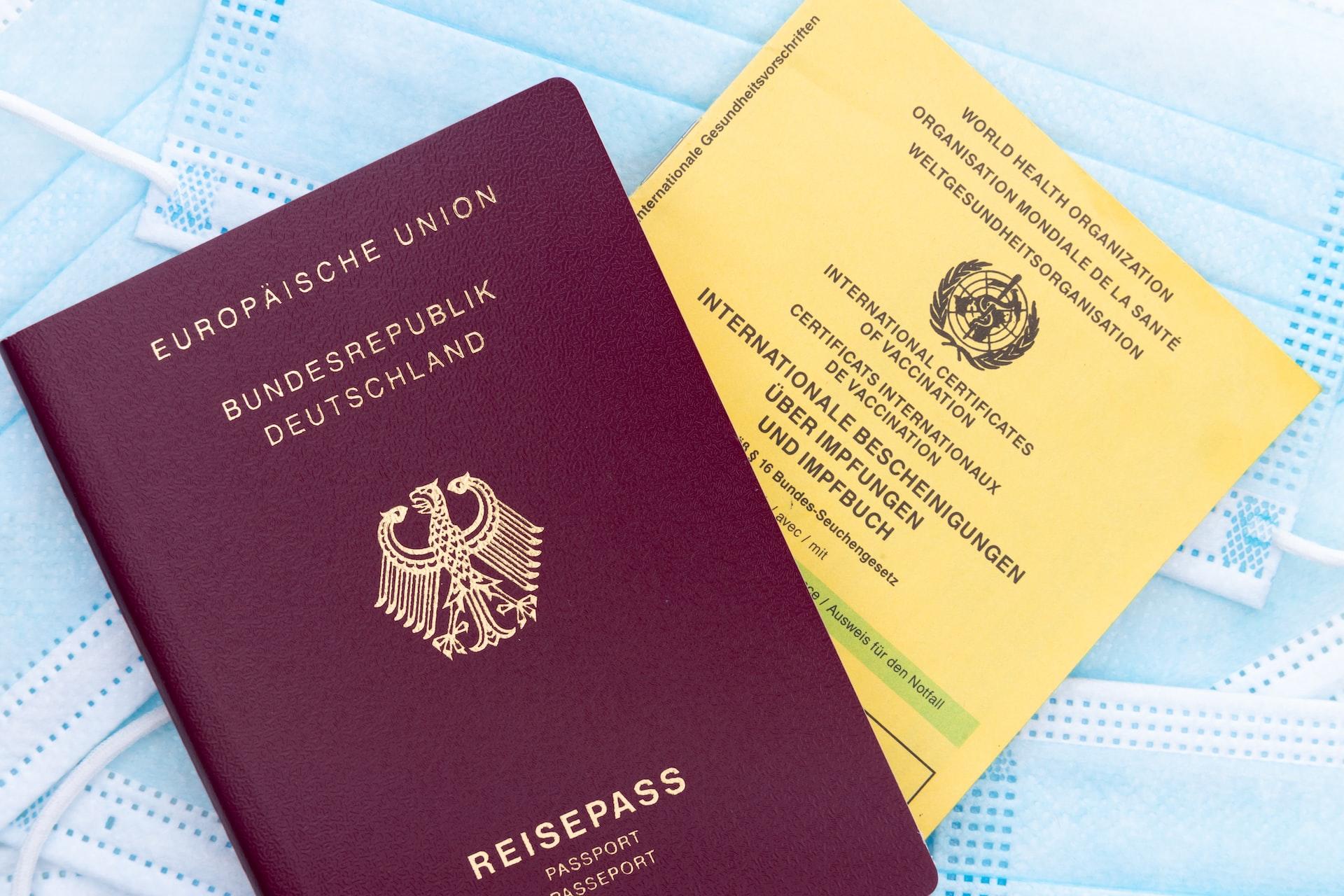German is perhaps one of the most underrated languages in the world. Although it is the most-spoken language in the European Union, people often avoid learning German because they believe it sounds “ugly,” is hard to learn, and isn’t relevant.
This couldn’t be further from the truth!
Did you know?
- German is the official language in six countries and is spoken by more than 100 million people worldwide. It is also the most widely spoken native language in the European Union.
- German is known for its long and complex words, which can be made up of several smaller words combined together. For example, "Donaudampfschifffahrtsgesellschaftskapitän," which means "captain of a Danube steamboat company," is made up of 27 letters and six smaller words. This is a reflection of the fact that German has a rich and complex grammar, with a system of inflections that allows words to be modified in many different ways.
Although unlike the Latin-based European languages like French, Spanish, and Italian, German has a strong influence in Europe and around the Globe.

Benefits Of Learning German in 2023
Learning a new language is hard, but if the language is German, then there are numerous benefits of including it as a new year resolution.
German Shares Roots with English
Believe it or not, English is actually a Germanic language. For this reason, many German and English words sound very similar, even if they are spelled differently (although some exactly the same).
A lot of words in English are taken directly from German, like Kindergarten, angst, delicatessen, hamster, knapsack, and spritz.
And, since German and English use the same alphabet (except for a few umlauts and the Eszett) spelling is relatively simple, especially compared to languages with whole different alphabets.
Lastly, German and English both share some Greek vocabulary! Dilemma, paranoia, phantom, and marathon all appear in both languages just the same.
The Amount of German Books and Internet Content is Massive!
Roughly 20% of all books ever published are written in German. Hardly any of these books are translated into English. The only way to enjoy this media is to know German!
Furthermore, about 91% of all Germans in Germany use the internet. It is one of the top 10 languages that are used online. This is another space that can really only be accessed and interacted with if you know the language.

University in Germany is Low Cost and High Value
Germany has abolished tuition fees for all students at public universities - even international students! And, you can take classes in English while taking a German course on the side, meaning you don’t need to dive right into German academia if you aren’t fully fluent yet.
The education from German universities is world-renowned and the degrees earned are recognized internationally. With modern facilities set inside historic buildings, you simply cannot replicate the experience of studying at a German university.
After graduation, you have a grace period of 18 months to find work in Germany.
Work/Life Balance in Germany
You will find that the work/life balance in Germany is quite nice. Germany has more national holidays than any other European country, where most services are closed on these days. Unless you work in a specific industry, there’s a good chance you’ll have all of these days off in a year, in addition to any holiday time and Sundays.
Typically, workweeks are limited to 40-48 hours, but each industry has different standards based on collective bargaining agreements. There are also a lot of safety measures in place to protect workers.
In order to get a job in Germany, you’ll almost certainly need to speak German.
Germany Has a Rich and Welcoming Culture
Germany has, in an average year, upwards of 35 million tourists. The country is very used to having visitors!
As long as you are a respectful tourist, you can expect to receive a rather warm welcome. Although the people might seem a little cold and aloof at first, that is just the way they are, culturally. Most people are very friendly, even if they speak very directly and have a placid face!
German culture includes a lot of interest in food, beer, sports, cars, etiquette, and punctuality.
If you can speak and read German, you can interact with the locals in a more meaningful way. You might find that you make a friend, and possibly even get invited over for tea!
German is Spoken All Over the World
German is one of the official languages of six countries: Germany, Austria, Belgium, Luxembourg, Switzerland, and Liechtenstein. Worldwide, there are about 130 million German speakers!
Due to Germans emigrating over the centuries, there are communities in many countries where the people still speak German often. Many speakers live in Russia, Namibia, Romania, and the United States. There are even notable German populations in a few parts of India!
The German language speaks Being, while all the others merely speak of Being. -Martin Heidegger
Knowing German Can Give You a Career Boost in India
It may seem odd that knowing German can help you work in India. But many international German companies have branches in India, and German fluency gives you a much better chance of working there and climbing the ladder.
Additionally, many companies work with German correspondents simply because of the power and influence of the German economy. Being able to be a reliable liaison or contact with a German team is a surefire way to add value to your career profile.
German is the second-most learned language in India after French. Due to the ‘First Move Advantage,’ German is taught in many schools and there are facilities all over India to learn it. The hope of this program is to facilitate sharing of resources (people and their education) between both countries.
Understand German Contributions to World Heritage
Much of the materials we consider to be part of world heritage are German. Literary figures like Goethe and Kafka, Musicians like Bach, Beethoven, and Mozart, Artists like Kollwitz and Kandinsky, Psychologists like Freud and Jung, and Philosophers like Kant and Neitzche were all Germans.
To know German is to be able to understand more about the context for all of these works and more. You can also interpret the source material without the use of translation, which can sometimes unintentionally misconstrue the message.

Keep Up With the Future of the Global Market
Germany is a world trader; the second largest exporter in the world and Europe’s largest economy. If you are working in any large industry with a worldly reach, it could be directly beneficial for you to know German.
There are many companies in the automobile engineering, chemical engineering, electrical engineering and electronics, and machinery sectors that have German associations. They may be based out of Germany or work closely with their German counterparts.
Knowing any additional languages are great for your global networking abilities, but German is especially promising for a professional career. Your career can only be helped when you learn German language.
Make International Friends
Whether you are a world traveler, work in the hospitality industry, work for an airline, or simply like making online pals, learning German will make you better at all of it!
You’ll be a better tourist abroad, able to go off the beaten path and communicate with locals. If you work in hospitality, you will be able to better serve your German guests (and there is a good chance you will have some, since there are so many Germans who travel abroad). In air travel, you may find both passengers and other airline workers speak German.
Where to Learn German
Germany is proud of its language and happy to teach it to any who seek it. And as mentioned before, the ‘First Move Advantage’ initiative has created many different places to learn German in India.
You can check out the Goethe Institut Max Mueller Bhavan in several locations around India.
There are also plenty of online German language course options, language learning apps, study-abroad and immersion programs, and free online resources. If German is beneficial for your job, you might even be able to have your employer provide lessons for you!
One way you can ensure that you receive individualized attention in your German studies is to hire a tutor. With Superprof, you can custom search for an online or in-person tutor who meets your needs.
One thing is for sure: German has been an extremely influential language for centuries, and it seems that the trend will continue for the foreseeable future.
Books To Learn German At Home
Here are five books that could be helpful for learning German at home:
- "German for Dummies" by Paulina Christensen and Anne Fox: This book is a comprehensive guide to learning German, with chapters on grammar, vocabulary, and culture, as well as practice exercises and a glossary of key terms.
- "Mastering German Vocabulary" by Paul G. Graves: This book is designed to help you build your German vocabulary, with chapters organized by theme and featuring practice exercises and word lists to help you memorize new words.
- "German Grammar Drills" by Ed Swick: This book is a practical guide to German grammar, with clear explanations and plenty of exercises to help you practice what you've learned.
- "German in 10 Minutes a Day" by Kristine K. Kershul: This book is a self-teaching guide to German, with chapters on grammar, vocabulary, and culture, as well as practice exercises and a dictionary of common words and phrases.
- "Complete German: A Teach Yourself Guide" by Paul Coggle and Heiner Schenke: This book is another comprehensive guide to learning German, with chapters on grammar, vocabulary, and culture, as well as practice exercises and a glossary of key terms.
Résumer avec l'IA :











